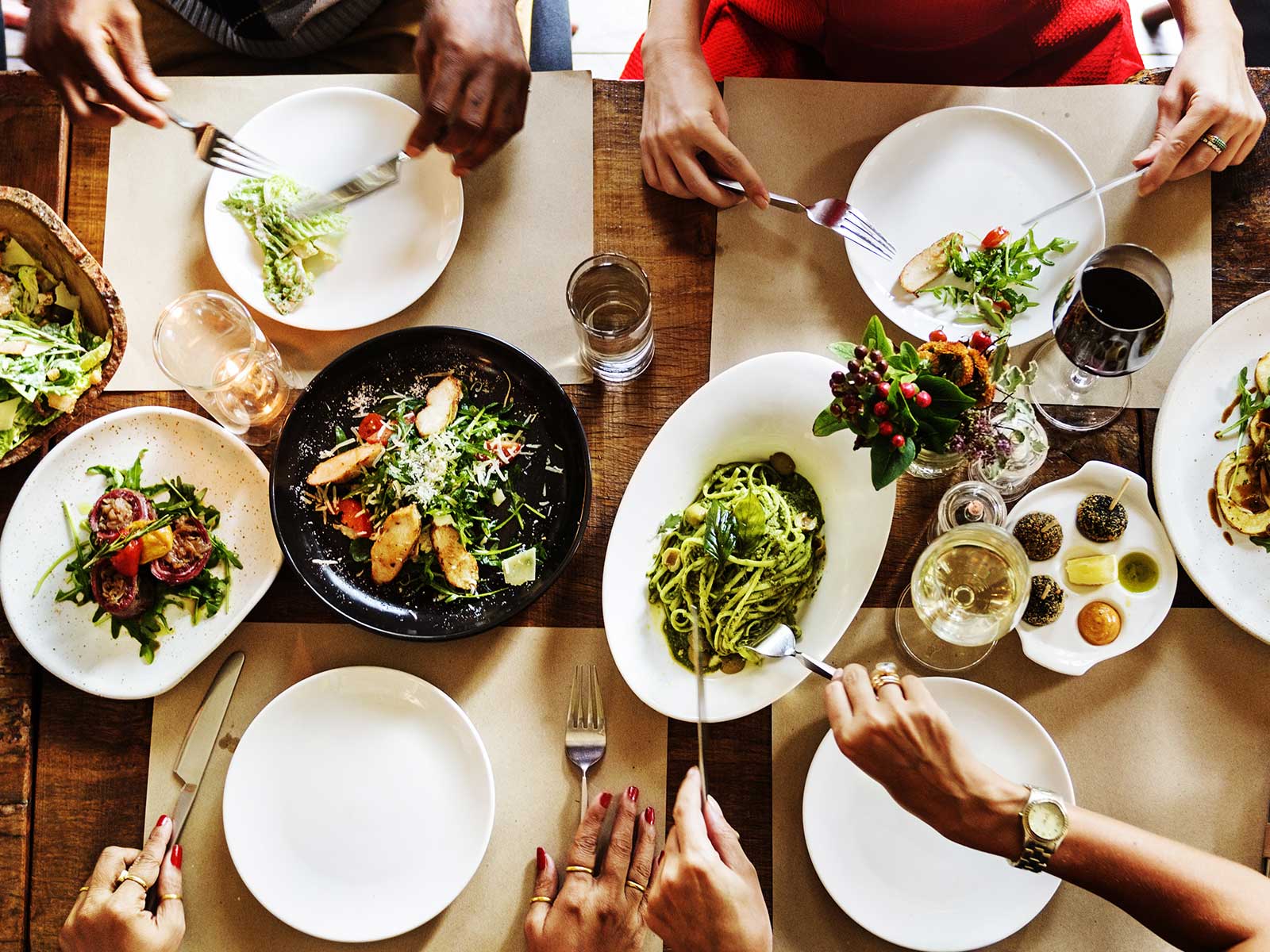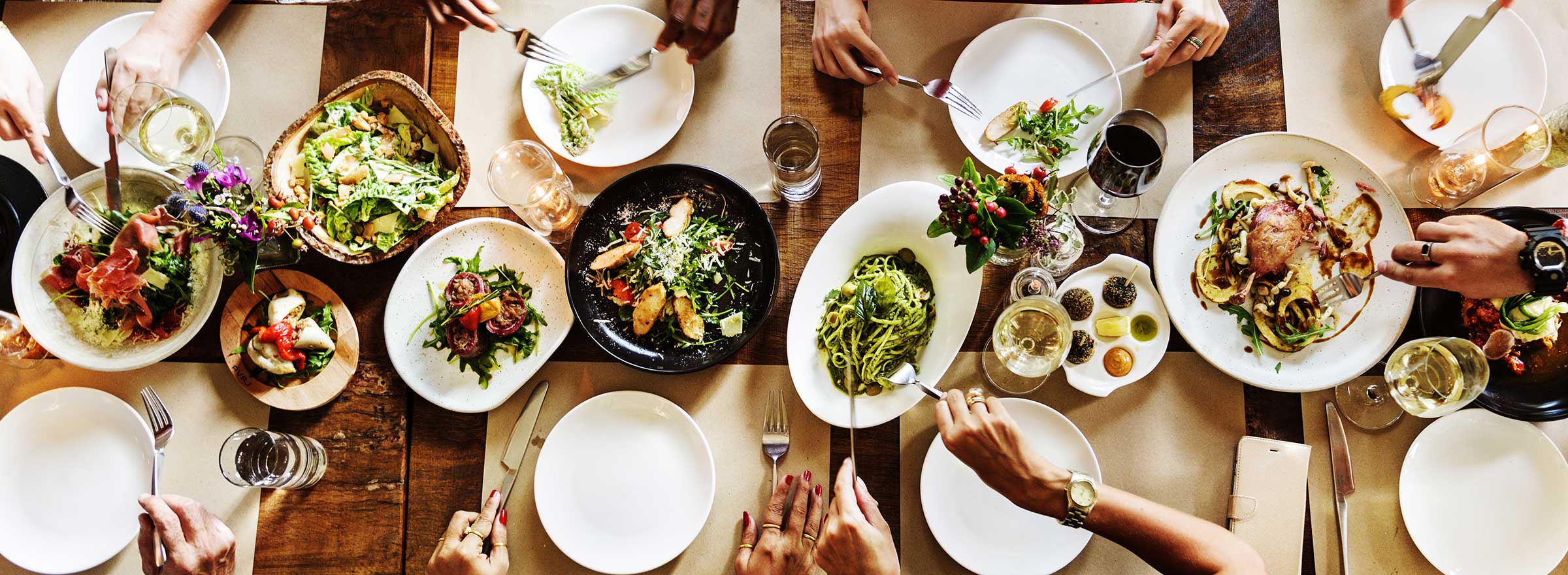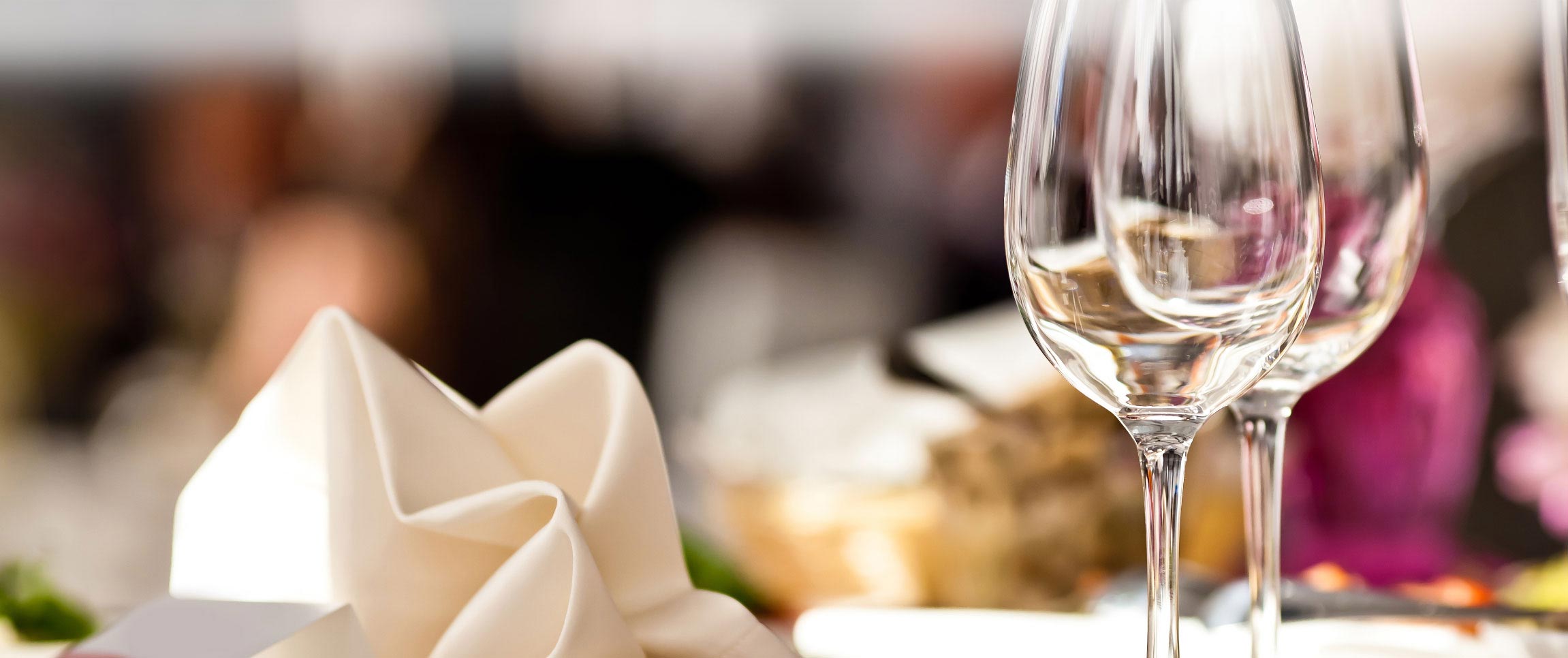Multi-chef dinners are extremely popular, seemingly popping up every week in busy dining markets. It’s a great way for chefs to collaborate, share skills and explore new passions; and it’s usually pretty exciting for guests.
Collaborative dinners can bring awareness to a specific cause and can give chefs a chance to flex creative muscle. But there’s more to it than meets the eye, and the best chef dinners must be thoughtful from start to finish. Here’s how to create a memorable, enjoyable evening for your guests and fellow chefs.
Create the Professional Atmosphere You Want
Once you’ve decided to host a dinner that brings together chefs from your community and beyond, take a moment to think about the tone you want to set for the event as a whole. That tone starts with the way in which you solicit chefs to join your team. Consider who you’re asking: Are they the best chefs for the job, or are they your buddies? Does the line-up reflect the diversity of chefs in your community, or do all the chefs represent a similar point of view?
When you’re ready to call on your colleagues, you can start in an informal way, gauging interest and getting your ducks in a row. Once you have a team in place, it’s important for you, the host, to establish the parameters. While a formal legally-binding contract may be unnecessary, a written agreement can help you communicate clearly what your expectations are and what your colleagues can expect from you. Here are a few things to clearly state in a written agreement:
 Date and time of the dinner, as well as when you expect prep to occur on-site
Date and time of the dinner, as well as when you expect prep to occur on-site- Dates and times of any planning meetings
- Your plan for PR and promotion of the event and what you would like your peers to contribute to that effort Any connection to and/or donation to a nonprofit
- Any relevant policies that are specific to your kitchen
- Your expectation for addressing the guests before, during or after the dinner
- What dish the participating chef will be preparing (or at least some basic concept/ingredients)
Have these chefs print and sign the agreement to acknowledge that all of the participants in this dinner are on the same page.
Get Noticed
Determine who on your team (it may be someone from your restaurant or from a participating restaurant) is best suited to create and send a press release. A good timeframe for sending a release would be about a month prior to the dinner. This gives press enough lead time to work the story into their coverage and should provide ample time for follow-up interviews. You release should include:
- In the opening paragraph: The where, when and who of the dinner, plus how guests can purchase tickets. (Consider offering a couple’s rate, ie. One ticket for $65 or two for $120)
- A quote from the host Any connection to a special cause or nonprofit
- Specific details about the theme of the dinner
- A few menu details
- A quote from another participating chef or nonprofit beneficiary
- Information on the best way for journalists to follow up. Ex: “For more menu details, pictures, or to schedule an interview, contact XX.”
Make the ticketing process as simple and straightforward as you can. Platforms like Eventbrite do take a fee, but they can alleviate the burden on your hosting staff and can give potential guests a way to ‘scope out’ the event without having to make the dreaded plunge of actually picking up the phone and calling the restaurant. Similarly, asking potential guests to “email the restaurant to reserve a seat” is less likely to be successful than running ticket sales through a third party ticketing platform.
You’ll also need to promote the dinner via social media. Create posts on Instagram and Facebook to let your followers know what’s going on. You may want to consider offering a giveaway for two seats for followers who tag friends in the comments of the post, especially if you are trying to reach a wider audience. Set up a Facebook event page, and invite your network to attend. A Facebook event page gives you the opportunity to update potential guests with details that might sweeten the deal for them, including letting people know how many tickets are left if there’s a risk of selling out. Encourage the other participating chefs to follow suit with their own social media posts. You may want to provide an image for them to use, especially if you have good graphics for the dinner. This is something you should establish with chefs in advance (see above). If you’re hosting and assuming the majority of the risk, it’s reasonable to ask your peers to put the word out there to their followers!

 Set the Scene
Set the Scene
This isn’t just another night in your restaurant, so don’t treat it like that. Pay special attention to ambiance and consider enhancing the vibe with fresh cut flowers, small souvenirs for guests, or other special touches. If the dinner has a specific theme, brainstorm ways to carry that through to the dining room. For example, at one dinner I attended that celebrated foraging chefs, the tables were decorated with little bamboo planters that the guests were able to take home at the end of the meal.
If there’s a fun, pop culture theme, bring that to the dining room with cool touches, like menus that include pictures and stories to take the reader through the full narrative of why this dinner is special or a well-curated soundtrack to set the perfect mood.
Address the Guests
I would have thought that this would be a no-brainer, but experience suggests otherwise. I get it: Chefs are busy and, at times, well let’s just say, standoffish. But these guests have paid a premium to hear from you and the other chefs you’ve brought to the dinner, and I can’t state this strongly enough: You owe them an appearance. Thank your guests, thank and acknowledge the other chefs who are participating (and give them the floor when you’re finished), and if there’s a nonprofit beneficiary or other worthy cause behind the endeavor, take the time to express to your guests why that cause matters to you. Or, if you’re excited to share a new kind of cuisine that’s not typical to your restaurant, express that: Share your passion with your guests, and they’ll be more likely to spread the word and return for other similar events.
A day or two later, consider following up with guests. If your ticketing platform allows you to message guests, use that as a way to thank the guests again. It’s also a great way to get feedback--what worked, what needed improvement. You can create a simple Google form that guests can fill out anonymously to help you become even more successful in future dinners.



